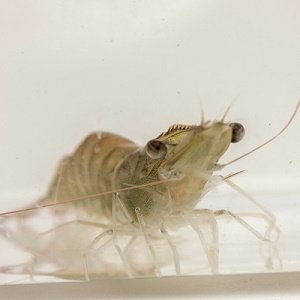
Optimizing the health and maximizing the protein yield of Nile tilapia (Oreochromis niloticus) remains a constant pursuit for fish farmers. Recent research published in the scientific journal Aquaculture, by researchers from the Laboratory of Aquaculture Nutrition and Environmental Health (LANEH) at East China Normal University, has shed light on a potential game-changer: uridine.
The study aimed to systematically evaluate the effects of uridine on Nile tilapia physiology. Nile tilapia (3.58 ± 0.02 g) were fed different levels (0, 1, and 4 g/kg) of uridine for 10 weeks.
The Role of Dietary Supplements
To ensure optimal growth, health, and productivity in aquaculture, dietary supplements have become a cornerstone of modern farming practices. These supplements can help address nutritional deficiencies, improve feed efficiency, and enhance overall fish health. Among various supplements, uridine, a naturally occurring pyrimidine nucleoside, has emerged as a promising candidate.
What is Uridine?
Uridine plays a crucial role in numerous biological processes, including RNA synthesis, energy metabolism, and inflammation regulation. Previous studies have shown its potential benefits in mammals, such as alleviating intestinal aging and improving intestinal barrier function. However, its physiological effects in fish, particularly in Nile tilapia, have been relatively unexplored.
This study investigated the impact of dietary uridine supplementation on Nile tilapia (Oreochromis niloticus).
Improved Growth and Fat Reduction
The research revealed significant findings. Nile tilapia fed the highest level of uridine (4 g/kg) showed substantial improvements in growth and body composition. The fish in this group exhibited:
- Higher carcass yield and total protein content: This translates to a higher yield of desirable protein meat for consumers.
- Reduced viscerosomatic index and total lipids: This indicates lower fat accumulation and more efficient energy utilization for growth.
Mechanism of Action
The study delves into the mechanisms underlying uridine’s positive effects. It appears that uridine influences gene expression, promoting protein synthesis and downregulating genes involved in fat storage. Additionally, it activates AMPK, a key enzyme that further stimulates fat breakdown (lipolysis) and reduces triglyceride levels in both the liver and blood.
Improved Liver Health
Uridine’s benefits extend beyond growth. The study found that higher uridine intake significantly reduced liver cholesterol levels. This is likely due to the suppression of genes responsible for cholesterol synthesis. Furthermore, uridine supplementation enhanced the liver’s antioxidant capacity, promoting overall liver health.
Improved Intestinal Health
The research also revealed positive effects on the tilapia’s intestines. Uridine supplementation increased the height of intestinal villi, which are finger-like projections that maximize nutrient absorption. It also improved intestinal barrier integrity and reduced inflammation, suggesting a healthier digestive system.
Stay Always Informed
Join our communities to instantly receive the most important news, reports, and analysis from the aquaculture industry.
Conclusion
“Dietary uridine supplementation could promote protein deposition, regulate lipid metabolism, improve antioxidant activity, and enhance intestinal health in Nile tilapia (Oreochromis niloticus),” the researchers conclude.
This study provides compelling evidence that dietary uridine supplementation can significantly benefit Nile tilapia. By promoting protein deposition, reducing fat accumulation, and improving liver and intestinal health, uridine has the potential to revolutionize tilapia aquaculture, leading to a more sustainable and efficient industry.
While this study offers promising results, further research is needed to determine the optimal uridine dosage for different growth stages of tilapia and to explore its long-term effects. Additionally, the cost-effectiveness and potential environmental impacts of uridine supplementation require investigation.
The study was funded by the National Natural Science Foundation of China.
Contact
Mei-Ling Zhang
Laboratory of Aquaculture Nutrition and Environmental Health (LANEH), School of Life Sciences, East China Normal University
Shanghai 200241, China
Email: mlzhang@bio.ecnu.edu.cn
Reference
Zhou, N., Ding, F., Wang, T., Dong, W., Qiao, F., Du, Z., & Zhang, M. (2025). Investigation of the physiological effects of uridine on Nile Tilapia (Oreochromis niloticus). Aquaculture, 595, 741632. https://doi.org/10.1016/j.aquaculture.2024.741632
Editor at the digital magazine AquaHoy. He holds a degree in Aquaculture Biology from the National University of Santa (UNS) and a Master’s degree in Science and Innovation Management from the Polytechnic University of Valencia, with postgraduate diplomas in Business Innovation and Innovation Management. He possesses extensive experience in the aquaculture and fisheries sector, having led the Fisheries Innovation Unit of the National Program for Innovation in Fisheries and Aquaculture (PNIPA). He has served as a senior consultant in technology watch, an innovation project formulator and advisor, and a lecturer at UNS. He is a member of the Peruvian College of Biologists and was recognized by the World Aquaculture Society (WAS) in 2016 for his contribution to aquaculture.







